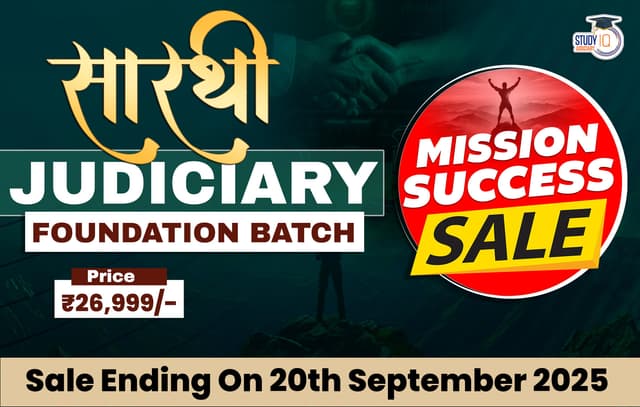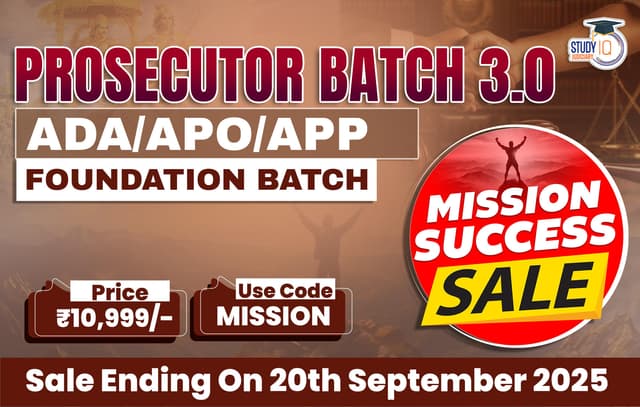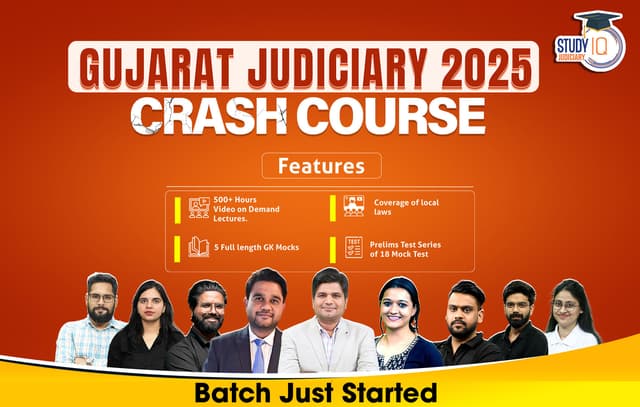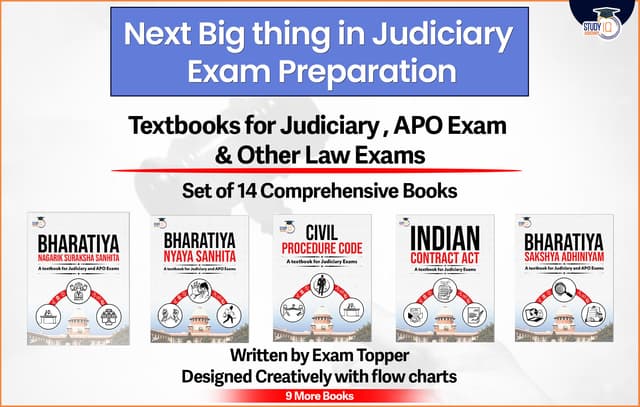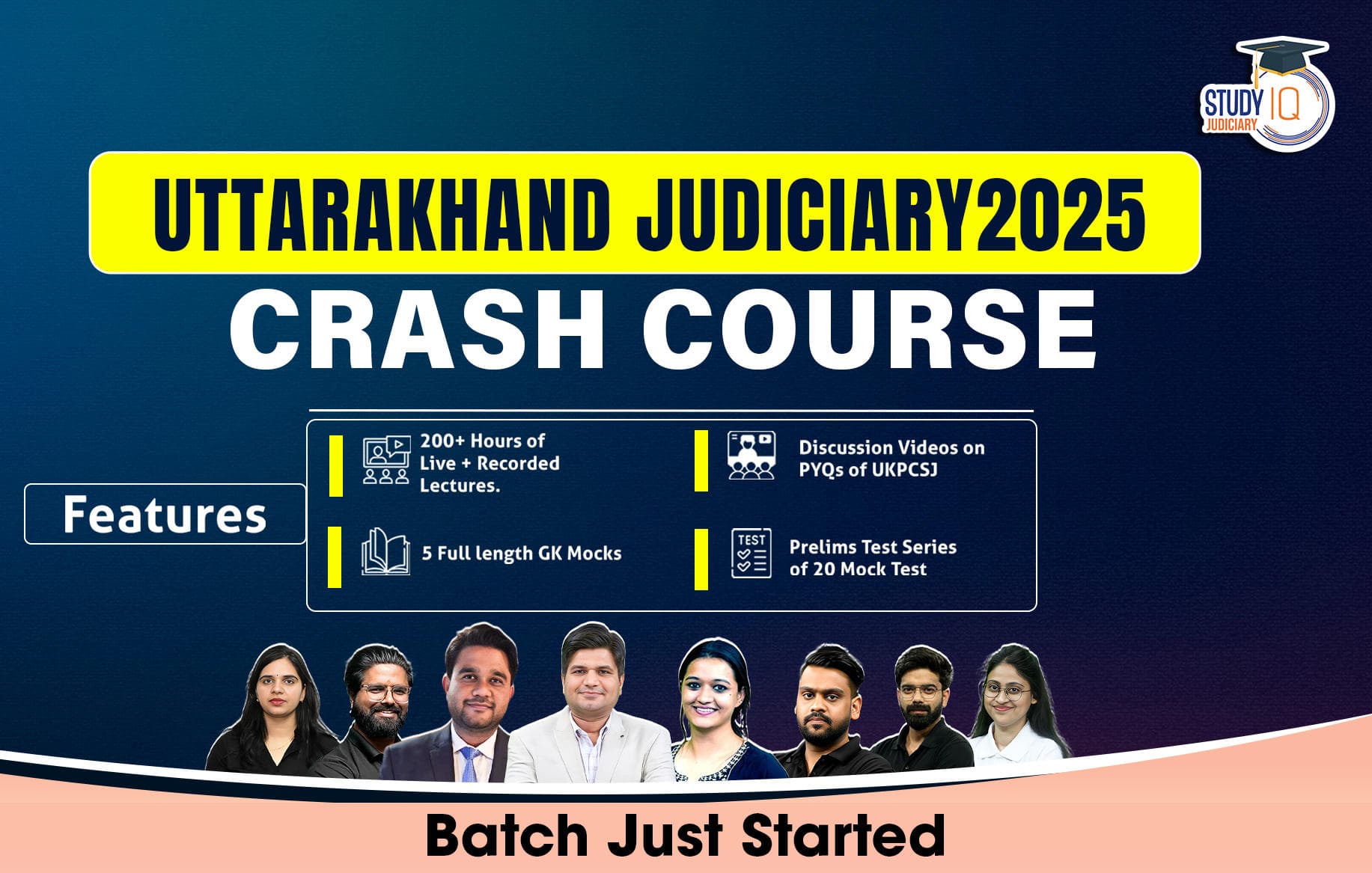Table of Contents
Why in the news?
In a recent development, President Droupadi Murmu raised concerns about the Supreme Court’s ruling in State of Tamil Nadu v. Governor of Tamil Nadu, 2025 SCC OnLine SC 770. The judgment aimed to establish clear timelines for the Governor and President to grant assent to Bills under Articles 200 and 201 of the Constitution, preventing delays in legislative decisions. However, the President expressed apprehension regarding the potential effects of this judicial intervention on executive discretion in legislative approvals.
Advisory Jurisdiction of Supreme Court of India
The Supreme Court of India’s Advisory Jurisdiction, established under Article 143 of the Constitution, gives the President the authority to refer questions of law or public importance to the Court for its opinion. The advice of the Court is not binding in nature but is highly persuasive in determining governmental policy and interpretations of law.
This special function complements the judiciary’s role beyond that of adjudication and enables it to make an active contribution to the country’s constitutional and legal environment. Such prominent cases, like the Berubari Union case and the Ayodhya reference, draw attention to the significance of this jurisdiction in resolving intricate national problems.
Questions Submitted by the President
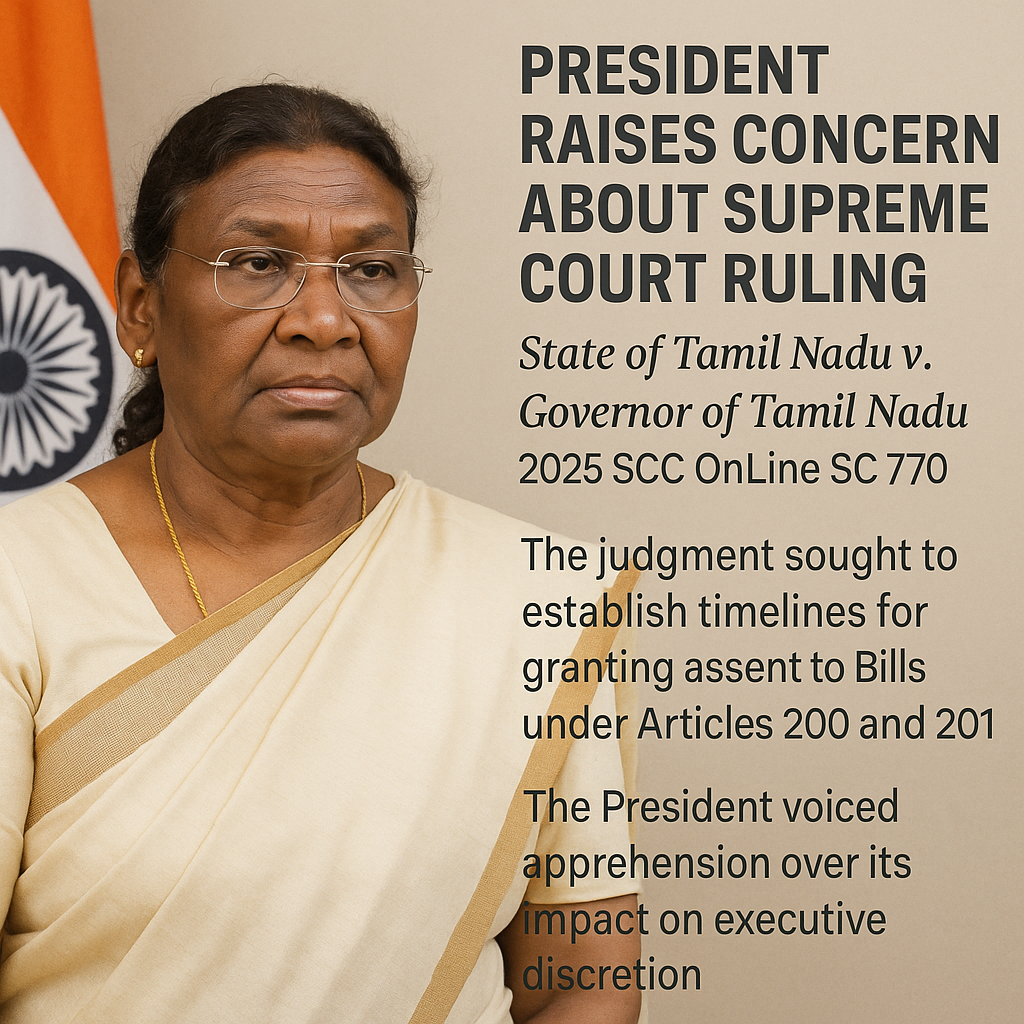
The key questions raised included:
- What are the constitutional options before a Governor when a Bill is presented to him under Article 200 of the Constitution of India?
- Is the Governor bound by the aid & advice tendered by the Council of Ministers while exercising all the options available to him when a Bill is presented before him under Article 200 of the Constitution of India?
- Is the exercise of constitutional discretion by the Governor under Article 200 of the Constitution of India justiciable?
- Is Article 361 of the Constitution of India an absolute bar to judicial review about the actions of a Governor under Article 200 of the Constitution of India?
- In the absence of a constitutionally prescribed time limit, and the manner of exercise of powers by the Governor, can timelines be imposed and the manner of exercise be prescribed through judicial orders for the exercise of all powers under Article 200 of the Constitution of India by the Governor?
- Is the exercise of constitutional discretion by the President under Article 201 of the Constitution of India justiciable?
- In the absence of a constitutionally prescribed timeline and the manner of exercise of powers by the President, can timelines be imposed and the manner of exercise be prescribed through judicial orders for the exercise of discretion by the President under Article 201 of the Constitution of India?
- In light of the constitutional scheme governing the powers of the President, is the President required to seek advice of the Supreme Court by way of a reference under Article 143 of the Constitution of India and take the opinion of the Supreme Court when the Governor reserves a Bill for the President’s assent or otherwise?
- Are the decisions of the Governor and the President under Article 200 and Article 201 of the Constitution of India, respectively, justiciable at a stage anterior into the law coming into force? Is it permissible for the Courts to undertake judicial adjudication over the contents of a Bill, in any manner, before it becomes law?
- Can the exercise of constitutional powers and the orders of/by the President / Governor be substituted in any manner under Article 142 of the Constitution of India?
- Is a law made by the State legislature a law in force without the assent of the Governor granted under Article 200 of the Constitution of India?
- In view of the proviso to Article 145(3) of the Constitution of India, is it not mandatory for any bench of this Court to first decide as to whether the question involved in the proceedings before it is of such a nature which involves substantial questions of law as to the interpretation of constitution and to refer it to a bench of minimum five Judges?
- Do the powers of the Supreme Court under Article 142 of the Constitution of India limited to matters of procedural law or Article 142 of the Constitution of India extends to issuing directions /passing orders which are contrary to or inconsistent with existing substantive or procedural provisions of the Constitution or law in force?
- Does the Constitution bar any other jurisdiction of the Supreme Court to resolve disputes between the Union Government and the State Governments except by way of a suit under Article 131 of the Constitution of India?
Supreme Court’s Opinion
The Supreme Court, in its ruling on State of Tamil Nadu v. Governor of Tamil Nadu, clarified that the concepts of “pocket veto” and “absolute veto” do not align with the constitutional framework established under Article 200 of the Constitution of India. While Article 200 does not specify a strict time limit for the Governor to act on bills presented for assent, the Court emphasised that this provision cannot be interpreted in a way that allows indefinite delays, effectively obstructing the legislative process at the state level. Prescribes Time Limits for Governors to Act on Bills.
To prevent such delays, the Court prescribed specific timelines for the Governor’s exercise of powers:
- If the Governor withholds assent or reserves a bill for the President’s consideration based on the aid and advice of the State Council of Ministers, action must be taken immediately, but no later than one month.
- If the Governor withholds assent contrary to the advice of the Council of Ministers, the bill must be returned with a message within a maximum period of three months. Prescribes Time Limits for Governors to Act on Bills.
- If a bill is reserved for the President’s consideration against the advice of the Council of Ministers, the Governor must make the reservation within a maximum period of three months.
- When a bill is presented for reconsideration following the first proviso, the Governor must grant assent immediately, but within a maximum of one month.
Regarding Article 201, the Court ruled that the President does not possess a “pocket veto” or “absolute veto” when deciding on bills reserved for consideration. The phrase “shall declare” in Article 201 makes it mandatory for the President to either grant or withhold assent to a bill, ensuring that no constitutional authority can act arbitrarily. If the President chooses to withhold assent, they must provide reasons for doing so.
Despite the Court’s attempt to streamline the legislative process, the President raised concerns under Article 143(1) of the Constitution, questioning whether judicially imposed timelines could apply to discretionary powers granted by the Constitution. Articles 200 and 201 provide the Governor and President with the authority to grant assent, withhold it, or seek further reconsideration of a bill. This ruling has sparked a broader debate on the extent of judicial intervention in executive functions and the balance of power between the Judiciary and the Executive in constitutional procedures.
Article 143 of the Constitution of India
Article 143 of the Indian Constitution has its roots in the Government of India Act, 1935, which empowered the Governor-General to seek legal opinions from the Federal Court on matters of public significance. This provision was designed to provide authoritative legal guidance on complex constitutional and administrative issues, ensuring clarity in governance.
The Canadian Constitution incorporates a similar mechanism, allowing its Supreme Court to issue advisory opinions when requested by the government. This practice helps in resolving legal ambiguities before they escalate into full-fledged disputes. In contrast, the U.S. Supreme Court strictly adheres to the principle of separation of powers and does not provide advisory opinions. The American judiciary only adjudicates actual legal disputes brought before it, avoiding hypothetical or non-justiciable matters.

Article 143 serves as a crucial tool for constitutional interpretation, enabling the President of India to seek the Supreme Court’s advisory opinion on pressing legal questions. While the Court’s response is not binding, it carries significant persuasive value, often guiding executive and legislative actions. This provision ensures that constitutional uncertainties are addressed proactively, reinforcing the stability of governance.
Provisions Under Article 143: Presidential Reference to the Supreme Court
Under Article 143 of the Indian Constitution, the President of India holds the authority to seek the Supreme Court’s advisory opinion on significant legal or factual matters. This referral process is initiated based on the recommendation of the Union Council of Ministers, ensuring that the executive branch plays a role in determining the necessity of judicial guidance.
To maintain the integrity and depth of constitutional interpretation, Article 145 stipulates that any reference made under Article 143 must be heard by a bench comprising at least five judges of the Supreme Court. This requirement ensures that complex legal questions receive thorough deliberation by a substantial judicial panel.
While the Supreme Court provides its legal opinion on matters referred under Article 143, these opinions are not legally binding on the executive or legislature. However, they carry significant persuasive authority, often influencing governmental decisions and shaping constitutional interpretations. The advisory jurisdiction under Article 143 serves as a mechanism for resolving uncertainties in governance, reinforcing the stability of India’s constitutional framework.
Significance of Advisory Opinions in Constitutional Interpretation
Presidential references under Article 143 play a crucial role in shaping constitutional jurisprudence. While the Supreme Court’s advisory opinions are not legally binding, they carry significant persuasive authority, influencing governance and legislative processes. These opinions assist in defining the scope of executive authority, ensuring that constitutional functionaries act within prescribed limits. Clarify the relationship between the Judiciary and the Executive, particularly in matters where judicial intervention may be seen as encroaching upon executive discretion.
Strengthen federalism by addressing concerns over delays in Bill approvals and ensuring that State legislatures are not indefinitely obstructed.
The Supreme Court’s response to this reference could provide much-needed clarity on the constitutional boundaries of executive discretion. If the Court upholds the prescribed timelines, it may set a precedent for limiting delays in legislative approvals. Conversely, if the Court rules against judicially imposed deadlines, it could reaffirm the autonomy of executive decision-making in legislative matters. This reference is not just a legal issue it is a critical moment in India’s constitutional evolution, shaping the balance of power between the Executive, Judiciary, and State legislatures.

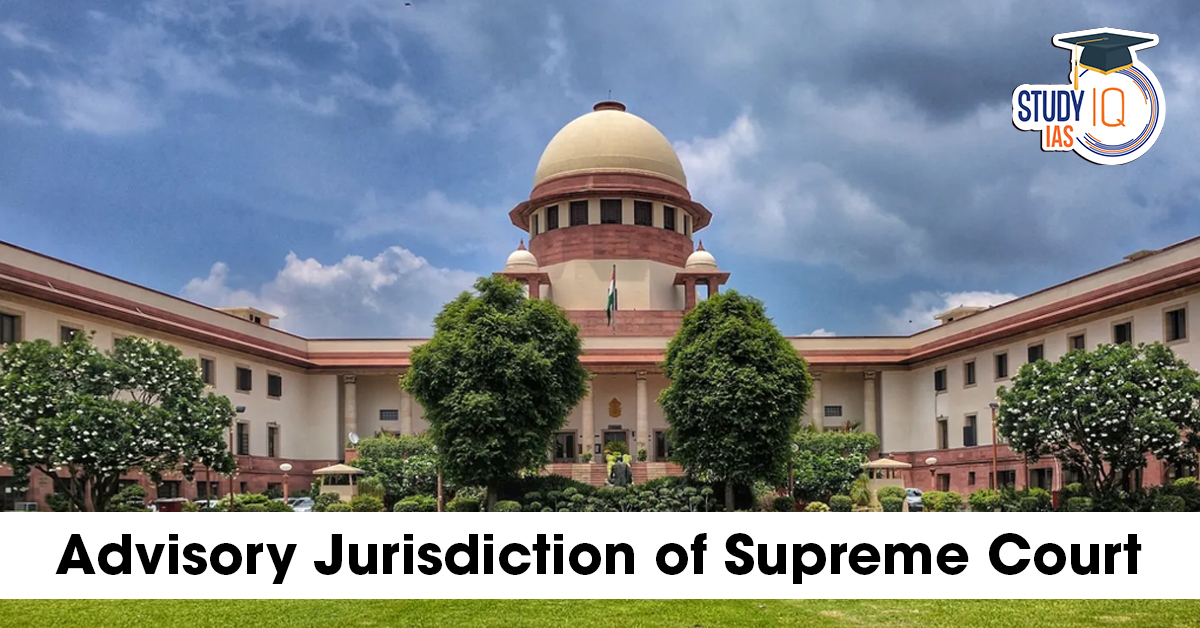
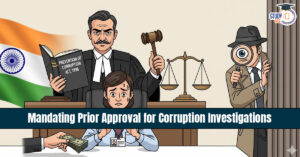 Mandating Prior Approval for Corruption ...
Mandating Prior Approval for Corruption ...
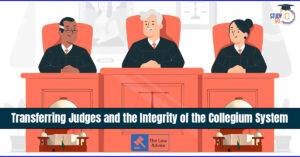 Transferring Judges and the Integrity of...
Transferring Judges and the Integrity of...
 Social Media, Judicial Narratives, and t...
Social Media, Judicial Narratives, and t...

